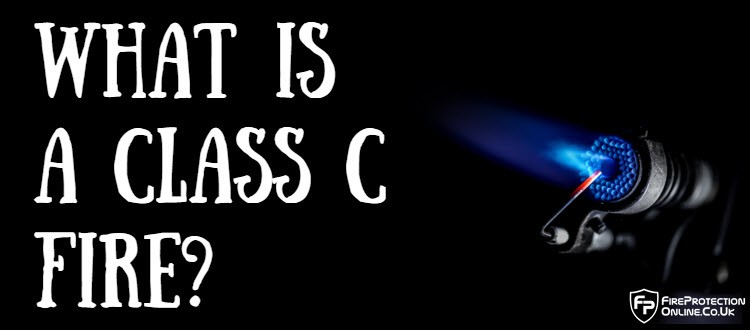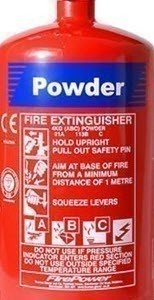
You need to know about the different classes of fire. Knowing the difference will allow you tackle a fire effectively and safely. It will mean you pick the right fire extinguisher for the job, as it’s a common misconception that ‘any extinguisher will do’.
This is true with Class C fires, as an incorrect extinguisher will instead cause the fire to spread. And with this, comes an increased risk to you and those around you.
So make sure you can identify whether you’re at risk of a Class C fire, and learn what you need to do.
Class C
A Class C fire is the burning of flammable gases, which can be very dangerous and highly explosive. These include gases such as butane and propane in gas canisters, which you’d expect to find in certain building trades. You will also find these with gas camping stoves and gas barbeques.
Natural gases, which you use to heat your home and cook your food, are also flammable.
These fires can occur when a leak is present and has come into contact with some sort of ignition, as well as when equipment is damaged and not properly maintain, installed or used, can be highly dangerous.

Preventing A Class C Fire
So if you’re using gas canisters, for whatever purpose, you need to make sure that nothing is damaged in any way. To avoid a Class C fire in this situation, you need to be checking for signs of rust or dents.
And don’t check for any leaks with a flame, but instead use soapy water.
You can also prevent ignition by ensuring that no flames, sparks or burning embers are anywhere near the equipment. But avoid storing large amounts together to stop any accidents from being too disastrous.
With gas appliances at home, so long as you’re always using professionals to carry out work, you should be fine. But if you ever smell gas, switch off all appliances immediately and get them checked by a Gas Safe registered engineer.
Tackling A Class C Fire
Before you do anything, turn off the supply of gas if it’s possible to do so. The only extinguisher which is safe to use on a Class C fire is a dry powder extinguisher.
It works by cooling the flames until there is no longer enough heat to keep them burning. But using any other type of extinguisher will instead just spread the fuel and flames.
And be careful as a Class C fire will burn intensely, so if you’re thinking of fighting it yourself, then stand right back.
The best advice though, is to call the fire brigade in this situation, as these fires are very difficult to tackle. So ensure you’re being as safe as possible when using flammable gases of any type.
And have a dry powder fire extinguisher to hand whenever there is an increased of their being a Class C fire.